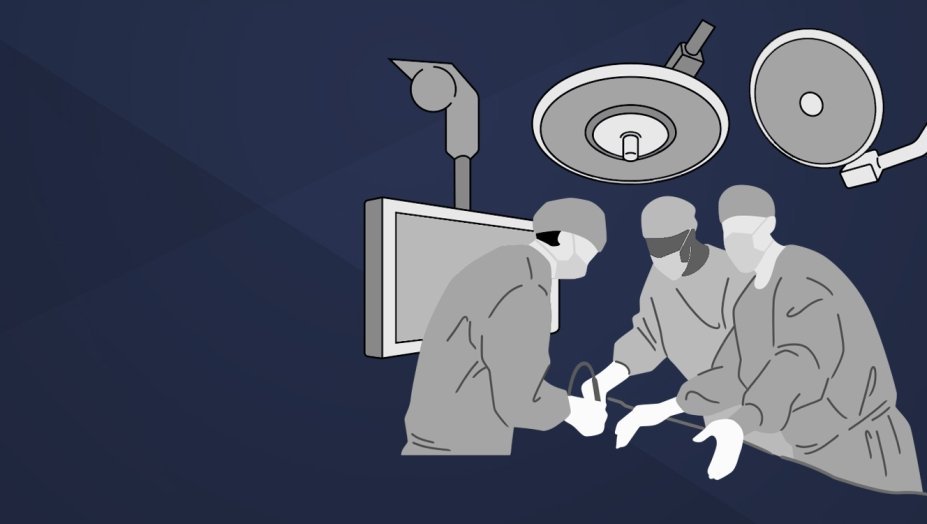Helping Employees Overcome Performance Anxiety
A surgeon educator and a performance psychologist address how leaders can curb lost productivity due to stress around job performance.

Jim Naples, MD, and Jim Doorley, PhD, draw on their experience teaching performance psychology skills to surgery trainees (residents) to explore how to empower employees to perform even when anxiety takes hold.
We recently led a session with surgery residents exploring anxiety in the operating room. One resident described consistent difficulties performing in front of a specific attending physician. He felt like he was watching himself perform as a passive observer – judging his every move and anticipating judgment from the attending. He was acutely aware of the problem but felt powerless to change it.
Slowly, other faculty and residents chimed in. For some, it was their first time voicing performance anxieties in front of colleagues and feeling validated. What once felt like shameful deficiencies seemed more like the universal growing pains of a demanding profession. A few months later, on a phone call, the first resident who spoke up shared that simply verbalizing his struggles and hearing similar stories freed his mind. His anxiety was nearly gone.
Performance anxiety is common whenever skill is required; outcomes matter, and other people will see or find out how well you do.
It’s often the social implications of performance that scare us most. Attempting to shoot a lay-up by yourself at your local gym? With no stakes or social pressure, anxiety is low. Now, imagine it’s halftime, and you have tickets to watch your favorite basketball team. You are chosen to shoot a sequence of shots, starting with a lay-up, to win a novelty-sized $25,000 check presented in front of a screaming crowd. Your skills haven’t changed, but now, you start to question yourself and consider the social implications of failure…“If I miss this first shot, everyone will think I’m a joke.”
As a corporate leader, even when you have the skills and experience, success isn’t guaranteed. Other people (employees, the public) will see your results. They will have opinions, and their opinions matter to you. There are also stakes: appear incompetent, lose money, or worse. In surgery, stakes are often the highest possible. Nowhere is performance more social or more personal than performing surgery on another human being to salvage their health and livelihood.
Performance anxiety isn’t discussed much in surgery; the public gets uncomfortable with the idea of their surgeons possessing anything less than nerves of steel. But performance anxiety happens, especially to the novice. Simply acknowledging the experience often improves performance by freeing people from their own inhibitions.
Leadership Call to Action
Think of the mounting stress and lost productivity caused by failing to address performance anxiety among novice surgeons, new hires, or newly minted managers. How can you reverse this dangerous trend as a corporate leader? Here are two strategies we promote:
Remember what it felt like when you were a novice. It’s easy to forget the anxiety and uncertainty we felt early in our careers. When we’re new, high stakes feel even higher. Our skills are less developed. We hyper-focus on what we perceive as glaring weaknesses and undervalue the strengths that got us where we are.
According to Julia Phelan, PhD, research on expert blind spots shows that while extensive content knowledge is an important qualification for teachers and leaders, more knowledge can make us forget what it’s like not to know. We assume that because something is easy for us, it should be easy for everyone. The Decision Lab notes that experienced leaders can also succumb to what psychologists call rosy retrospection – the tendency to recall past events as more positive and less challenging than they actually were. For example, you might look back fondly on the comradery and late nights of business school or your first job after college but forget the moments of anxiety and anguish. It’s a helpful bias in some ways. Our brain protects us by forgetting.
Before meeting with a mentee or group of new hires, recall an experience of anxiety you felt as a novice. Don’t just “remember;” try to vividly imagine it and feel it (the thoughts, the body sensations). To lead effectively, and empathically, these are the emotions you need to address.
Share your story. We see what happens when leaders in their field speak out about anxiety. In the sports world, the public is learning that performance anxiety is part of the athlete experience, even for many of the most skilled performers. It’s easier for established athletes – or leaders in any discipline – to speak out, whose careers and contracts are stable.
When appropriate, we share our own anxieties, past and present, with trainees, supervisees, and athlete clients. We are all humans – struggling, failing, feeling anxious, and gradually getting better. When leaders model vulnerability, they create a sense of shared humanity through struggle and a psychologically safer space for employees to perform.
Opening up about anxiety as a novice or trainee feels risky. We strive to approach anxiety proactively. We ask trainees about anxiety even before they display the overt signs. We remind them that before surgeons were confident, they were cautious. Before achieving technical mastery, they all made mistakes. As a leader, keep the memories of your early career-self alive. They will help you connect with your team, who only knows the current you, and empower your employees to perform even when anxiety takes hold.
